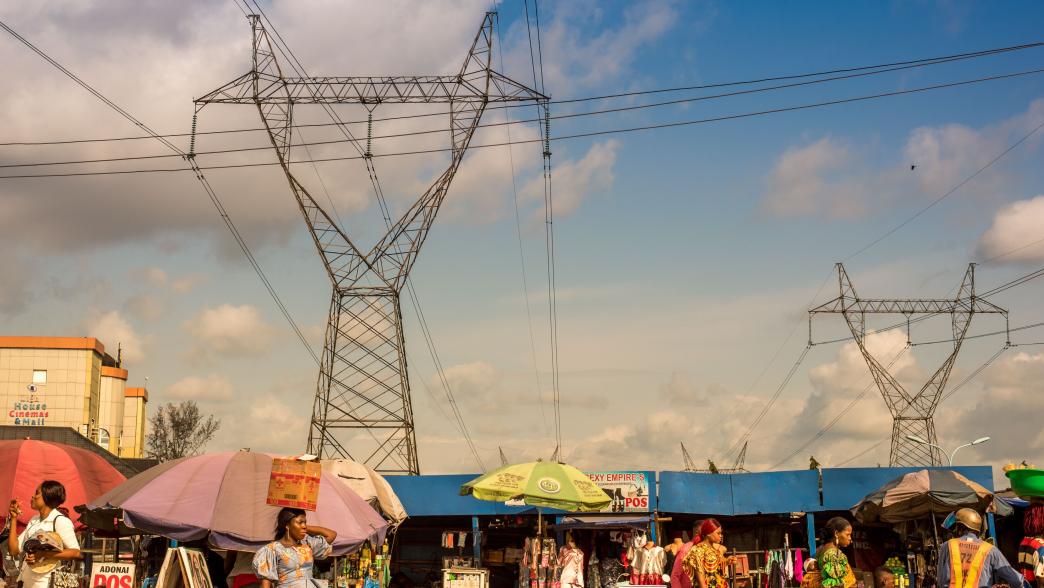
How the Nigerian Government Can Right Size Its Gas Ambitions for Economic Development
Meeting Nigeria’s domestic energy needs remains one of the most significant barriers to sustainable development and economic growth in the country. Only half of Nigeria’s 200 million citizens currently have access to energy, and with the population set to double by 2050, universal access is a huge challenge.
The government proposes to ramp up gas production, utilization and export, with the aims of supporting industrialization, boosting domestic energy supply (for power, cooking and transport), and increasing government revenues. By doing so, the government expects to enhance economic activity, thus improving the lives of the half of the population living in extreme poverty.
The status of gas amid energy transition
Whether ramping up gas utilization is feasible, or indeed the appropriate approach to achieving Nigeria’s energy supply and economic ambitions, is uncertain. What is certain is that global pressure to transition away to cleaner energies and defund fossil fuel projects complicates the process of realizing that goal and could lead to wasted investments that jeopardize the economic and energy security of Nigerians in the future.
As the top oil producer with the largest gas reserves in Africa, set at around 200 tcf of proven reserves, Nigeria should be able to easily meet its domestic energy needs. But weak legal and regulatory frameworks, big infrastructure gaps, a non-cost-reflective pricing regime and host community conflicts have made the domestic gas sector uncompetitive and unattractive to investors. This, in turn, has left gas reserves underexploited, especially more expensive non-associated gas which represents half of Nigeria’s reserves.
Implementation of reforms by successive governments through the 2008 Gas Master Plan (GMP), the 2017 National Gas Policy (NGP) and other instruments have proven slow. With the passage of the Petroleum Industry Act (PIA) 2021, the legal, fiscal and regulatory framework of the gas sector has been strengthened with the creation of dedicated regulators, a dedicated minister, provision of third party access to infrastructure, and other improvements. But many gaps remain.
Thus the Decade of Gas Policy, launched in 2021 to address the limitations to achieving domestic gas-based industrialization and economic prosperity, and reduce energy poverty, faces greater challenges. The ambitious plan, not yet in the public domain, is intended to implement all previous ambitions in the GMP and NGP, including construction of the Nigeria-Morocco gas export pipeline, expansion of the Nigerian Liquified Natural Gas (NLNG) facility, and revival of the Nigerian Gas Flare Commercialisation Programme (NGFCP).
The government also intended the policy to settle debts to gas producers and initiate discussions on 10 key gas projects, aimed at unlocking greater volumes of gas both for domestic use and export. Nigeria seeks to unlock 3.1 bcf/d of gas to attract $14 billion in foreign direct investment, create over 2 million jobs and add $12 billion to the federal government’s revenue. However, three years on, authorities have publicized neither the policy itself nor progress updates, despite calls for clarification from several civil society actors, including the African Initiative for Transparency Accountability and Leadership, Civil Society Legislative Advocacy Centre, Centre for Journalism Innovation and Development, Stakeholder Democracy Network, Paradigm Leadership Support Initiative, Extractive360 and Nextier.
A challenging calculus
Despite the passage of the PIA, the push for gas expansion may have come decades too late. Fossil fuel projects are being defunded. The European Union will slap gas cargoes it deems to be of high methane and carbon intensity with punitive levies aimed at making them less competitive with cleaner fuels.
Consequently, African ambitions to bridge the still pervasive infrastructure deficit and expand investments to ramp up supply are more challenged than ever before. Countries on the continent only received 5 percent of global funding for gas power projects in 2022 compared to 12 percent in 2015. International public money for gas production in lower-income countries is less than $4 billion a year on average, with most going to Mozambique. With a gas infrastructure investment deficit of $20 billion per year, the Federal Ministry of Petroleum Resources and Power may need to prioritize alternative energy sources, in the midst of the government balancing its ambitions to transition its energy raising $10 billion annually.
Further, Nigeria’s government has not aligned its gas ambitions with broader energy transition plans, even as it bases its transition on leveraging gas as a “transition fuel.” New investments in gas fields as envisioned in section 9 of the PIA runs counter to the evolving global shift away from fossil fuels. New investments require long lead times before projects come online (and returns are realized), at which point there will likely be an oversupply of products and no demand. If countries’ commitments to combat climate change hold, Nigeria may be unable to export gas at the level it has come to rely on. That could potentially lead to stranded assets, including the pipeline investments to Europe, and infrastructure lock-in if renewable demand increases. Similarly, as gas production and use expand, the release of methane from flaring and venting gas, and from fugitive emissions, will likely increase. Those increased emissions will limit Nigeria’s ability to fulfil global methane emission reduction commitments, and also impact the health and environmental safety of nearby communities.
How the Nigerian government can move forward
To manage the decade of gas to enable Nigeria to meet its domestic energy needs and foster economic growth while accounting for global energy transition, the Nigerian government should:
- Manage its gas ambitions. Regurgitating all previous gas plans’ ambitions within the context of global commitments to defund fossil fuel investments is unrealistic. The government should instead acknowledge the reality of the energy transition; review its previous gas plans; access the available funds for projects; and adjust and articulate a shared agenda for financing a holistic domestic energy system with gas and renewables accounted for.
- Publicly disclose comprehensive details of gas plans. Unlike the GMP and NGP, the Decade of Gas Policy was neither approved by the Federal Executive Council nor published. The Federal Ministry of Petroleum Resources (Gas) and the Decade of Gas Secretariat must disclose details on the planned projects, realistic financial projections, and periodic progress updates so that Nigerians and investors can track progress and implementation and hold the government accountable.
- Align with national, subnational and energy transition plans. The Federal Ministry of Petroleum Resources (Gas) should work with the National Council on Climate Change and the Energy Transition Office to align gas plans with the energy transition plans to ensure sustainability. The Federal and State Ministries of Budget and National Planning should ensure that the gas plans do not contradict national and subnational development plans, and align to help achieve goals such as reducing household wood fuel use and increasing electrification.
- Manage the risks associated with expanding gas use. The Federal Ministry of Petroleum Resources (Gas) and the Federal Ministry of Environment should properly assess the risks involved with gas expansion, and create a strategy to minimize the impacts, maximize the benefits, phase out oil and gas assets, and plan for a post-oil and gas future.
- Demonstrate sustainability. The Nigerian Upstream Petroleum Regulatory Commission (NUPRC) and the Nigerian Midstream Downstream Petroleum Regulatory Authority (NMDPRA) should clarify how they intend to fund gas expansion, resolve legacy power sector debt, utilize flared gas through the NGFCP, and attract international oil company investments for more gas generation and infrastructure development. Most importantly, authorities should clarify how these investments will comply with Nigeria’s global commitments to reduce methane emissions.
- Require all gas projects to include community development agreements (CDAs). Gas projects should include community development initiatives such as health care services, educational programs which can directly benefit marginalized groups such as women and youth, and enhance quality of life in affected communities. The involvement of communities in project decisions would determine CDAs’ level of impact.
- Close the inequality gap. The Federal Ministry of Petroleum Resources; Gas and the Decade of Gas Secretariat should manage the Decade of Gas initiatives in a way that supports the economic independence of women and youth, especially, and specifically improve women’s decision-making power in use and distribution of gas, thereby contributing to gender equality and social inclusion.
- Include civil society. Authorities should deliberately engage civil society and the media to ensure they translate the government’s decisions to the Nigerian people. Media can guide the government to stay on course through consistent investigations, reviewing and agenda setting.
If Nigerian authorities can develop gas expansion plans sensitive to the increasing constraints (financial, infrastructural, human resource-related) imposed by the energy transition, they could better balance the need to meet domestic energy demand and achieve a sustainable energy future.
The authors wish to thank members of the civil society coalition on gas—Louis Ogbeifun (AfriTAL), Alexander Sewell (Stakeholder Democracy Network), Charles Majomi (NEXTIER) and Juliet Alohan Ukanwosu (Extractive360)—for their contributions to this post.
Authors

Tengi George-Ikoli
Senior Officer

Aaron Sayne
Lead, Domestic Energy Transition

Nafi Chinery
Africa Director
